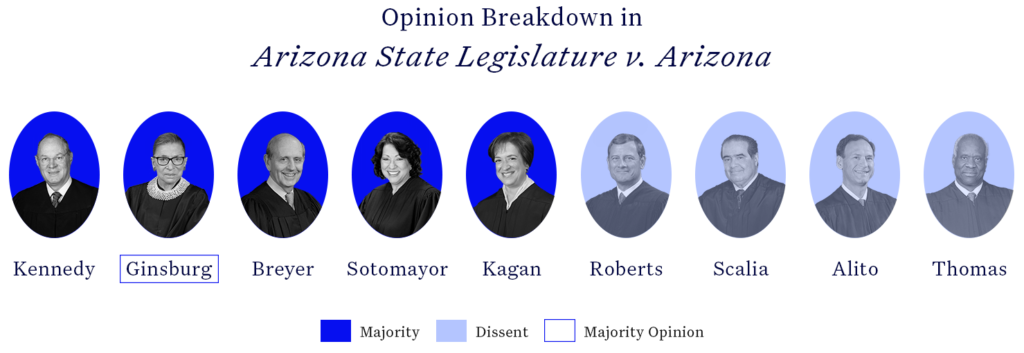Arizona Independent Redistricting Commission Challenge (SCOTUS)
Arizona State Legislature v. Arizona Independent Redistricting Commission
Lawsuit filed by the Arizona Legislature challenging the constitutionality of the state’s redistricting commission. In 2000, Arizona voters adopted Proposition 106, an amendment to the state constitution that moved redistricting authority from the Legislature to an independent commission in an effort to combat gerrymandering. In 2012, the Legislature sued over the state’s new congressional map, arguing that this transfer of power as it pertains to congressional map drawing violated the Elections Clause of the U.S. Constitution, which states that the “Times, Places and Manner of holding Elections for Senators and Representatives shall be prescribed in each State by the Legislature thereof; but the Congress may at any time by Law make or alter such Regulations.”
A three-judge panel rejected the Legislature’s arguments that Proposition 106 violated the Elections Clause. The U.S. Supreme Court affirmed in a 5-4 decision. The majority specifically rejected the argument that “the Election Clause, by specifying ‘the Legislature thereof,’ required assignment of congressional redistricting authority to the State’s representative body.” Further, the majority concluded that such a reading of the Elections Clause — that “Legislature” exclusively means the legislative body itself and no other components of the legislative process, including citizen-led initiatives — would “run up against the Constitution’s animating principle that the people themselves are the originating source of all the powers of government.”

Case Documents (U.S. Supreme Court)
Case Documents (district court)
Last updated: